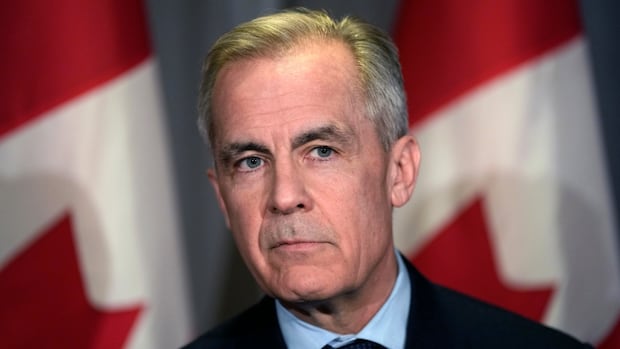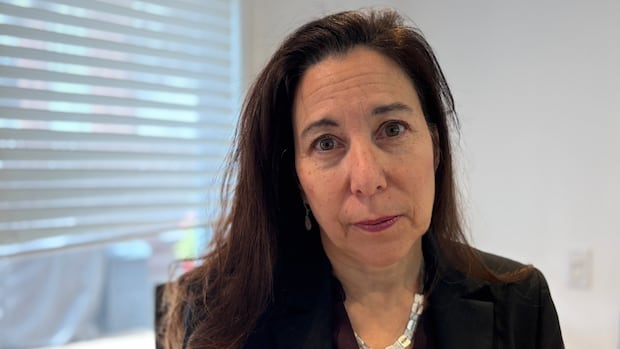Alberta's attorney general is calling for a judicial review after a man convicted in the murder of an Edmonton woman more than three decades ago was granted a new trial.
Roy Allan Sobotiak was granted a new trial in February by Federal Justice Minister Arif Virani, who said there were reasonable grounds to believe that a "miscarriage of justice likely occurred" in Sobotiak's case.
Alberta Attorney General Mickey Amery contests that decision and has applied for a judicial review.
In a Federal Court filing last week, Amery argues that his federal counterpart provided no reason — written or otherwise — to support his findings that a new trial is warranted.
Sobotiak has served more than 35 years behind bars for second-degree murder in the death of 34-year-old Susan Kaminsky, an Edmonton mother who disappeared in 1987.
In a Feb. 26 news release, the federal Department of Justice said Virani's decision to order a new trial was "not a decision about the guilt or innocence of the applicant" but a "decision to return the matter to the courts where the new relevant legal issues may be determined according to the law."
CBC News has sought comment from the Department of Justice on Alberta's demand for a judicial review, and has asked the federal minister to provide more details on why a new trial was warranted.
In his request for a judicial review, Amery argues that Sobotiak was convicted by a jury of his peers, that all of his previous appeals have been rejected, and that Virani "failed to provide reasonably justifiable reasons" for concluding that Sobotiak's conviction was unjust.
"In communicating his decision to the Attorney General of Alberta, the minister provided a single page of correspondence, and a signed order addressed to the Alberta Court of King's Bench," Alberta Justice lawyer John-Marc Dubé wrote in the March 27 notice of application.
"The communication from the minister stated only that he had 'thoroughly reviewed the matter.' The minister owes a duty of procedural fairness to provide the Attorney General of Alberta written reasons when exercising his discretion to order a new trial."
Amery said the Alberta Crown Prosecution Service must know and understand what has made Virani believe a new trial is warranted. Virani failed to provide any reasons as to the nature of the miscarriage of justice, Amery argued.
"Directing a new trial after determining there is a reasonable basis to concluding a miscarriage of justice likely occurred is an extraordinary remedy," Amery's application says.
"The public is entitled to receive reasonable, sufficient, intelligible and transparent reasons for the Minister's decision to grant the extraordinary remedy."
Under the Criminal Code, a person who has been convicted of an offence and who has exhausted all rights of appeal may apply to the federal minister of justice for a review of their conviction.
Sobotiak applied to the minister for a review under Section 696 of the Criminal Code in February 2021. The Criminal Conviction Review Group of the Department of Justice Canada then conducted an investigation on behalf of the minister.
The Attorney General of Alberta participated in the investigation and would be responsible for any new trial, including determining if there remains a reasonable likelihood of conviction and if the prosecution is in the public interest.
Without a traceKaminsky disappeared in February 1987 after a night out with friends at a north Edmonton pub.
Her car was found abandoned. Her body has never been found.
She once babysat Sobotiak when he was a child. Police determined he was the last person to see her alive.
Police suspected foul play but no charges were laid until 1989 when Sobotiak, then 26, was charged with first-degree murder.
The principal evidence against him was taped statements he made to an undercover police officer in which he boasted that he had tortured, sexually assaulted, killed, and dismembered Kaminsky in his mother's basement before disposing of her body in the garbage.
He also confessed to the murder during a police interrogation but later changed his story.
In 1991, he was convicted and later sentenced to life imprisonment with no eligibility for more than 16 years.
'A free man soon'Sobotiak has continued to insist his innocence and has never been granted parole.
He previously launched unsuccessful appeals to both the Alberta Court of Appeal and the Supreme Court of Canada.
Innocence Canada, a non-profit organization that advocates against wrongful convictions, assisted Sobotiak in his application for a federal review.
In a statement last month, Innocence Canada said Sobotiak, now 62, is grateful for the decision and hopes he "will be a free man soon."
A Parole Board of Canada decision in November 2024 found that Sobotiak's release would pose an undue risk to society due his issues with substance abuse, his mental health and his continued failure to claim responsibility for the killing.
"You demonstrated a slightly improved understanding of your crimes; however, you still deny your offence," the parole board wrote.
"You continue to claim innocence."
The federal government is working to set up a new wrongful conviction review body to replace the current ministerial review process, which has been criticized for taking too much time to review too few cases.
Over the past 20 years, there have been 200 applications arguing wrongful conviction. Thirty cases have been overturned.













